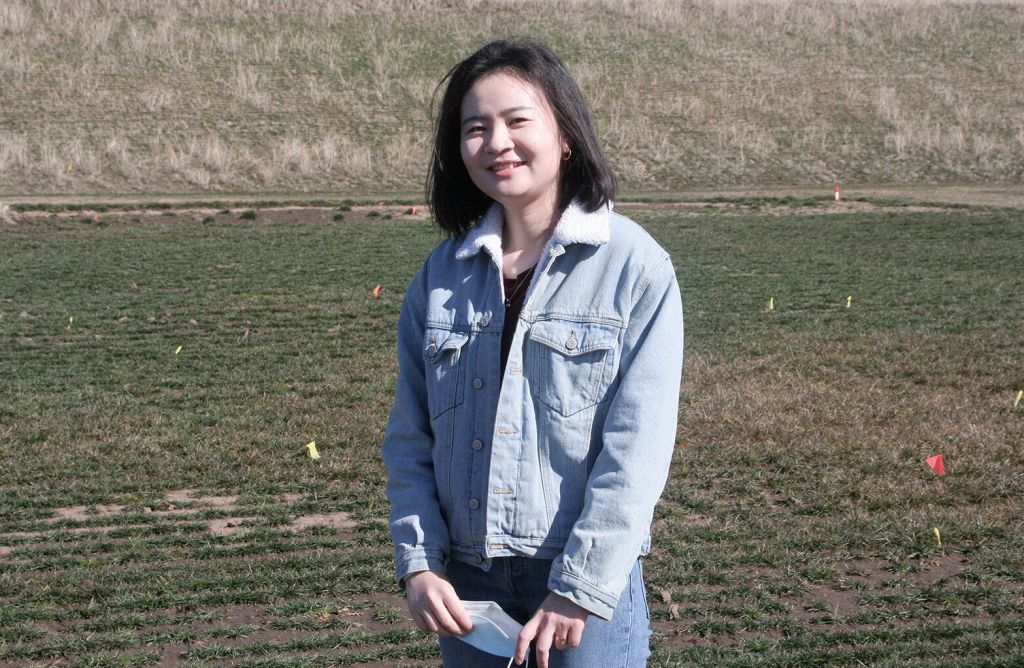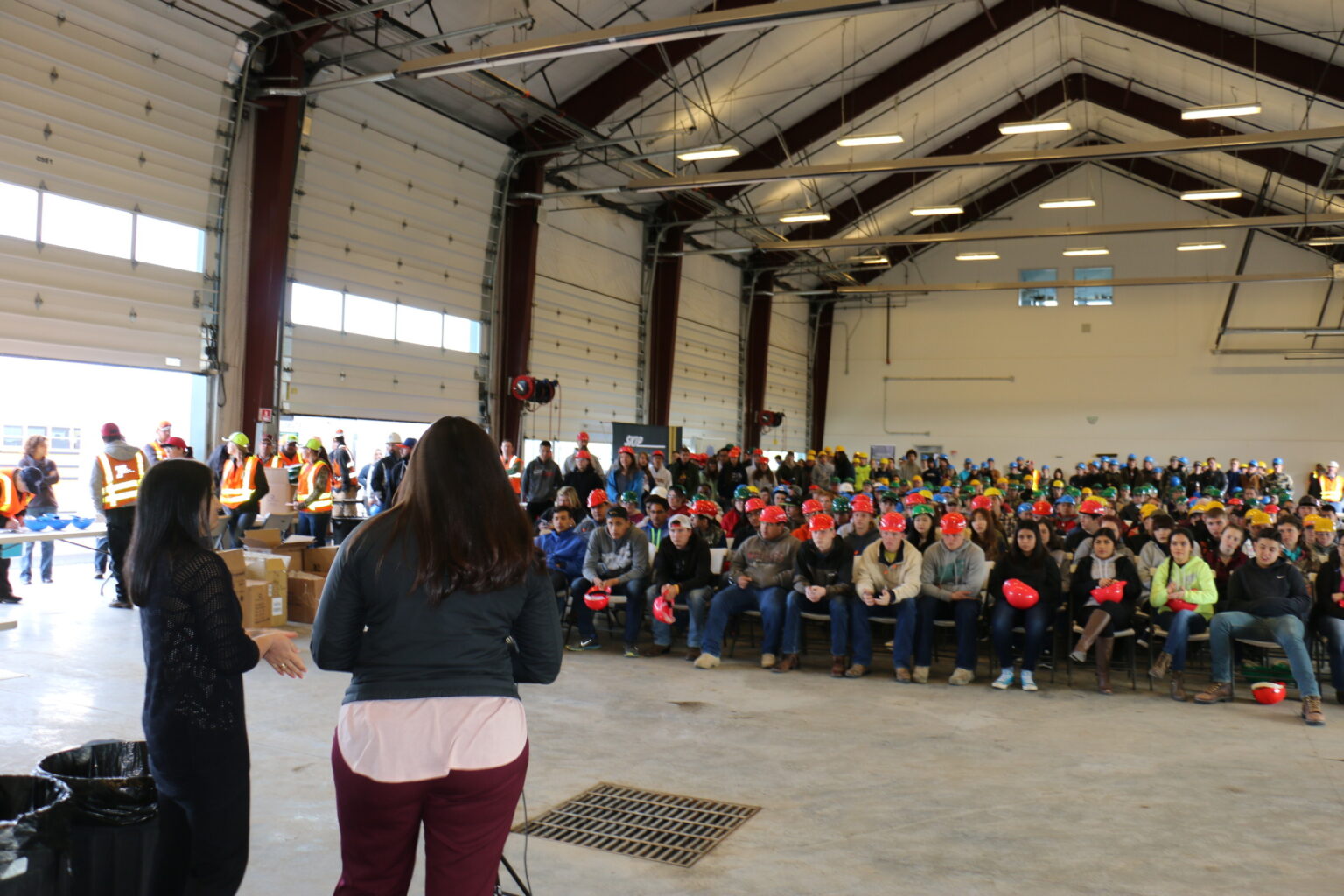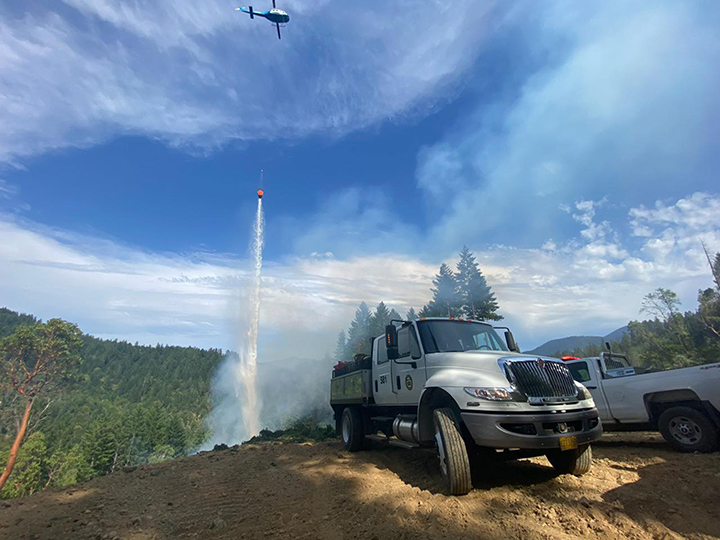Western Innovator: Boosting Kentucky bluegrass seed yields
Published 10:15 am Friday, April 9, 2021

- Xin Xin, a Washington State University Ph.D. student, stands near a Kentucky bluegrass cultivar field site March 10 at the university's perennial grass breeding and ecology farm in Pullman, Wash. Xin studies the molecular side of the crop to improve Kentucky bluegrass vernalization for farmers.
PULLMAN, Wash. — Xin Xin hopes to help Kentucky bluegrass farmers increase seed yields through her groundbreaking genetic research.
Xin, a Chinese Ph.D. student at Washington State University, is studying how Kentucky bluegrass genes respond to vernalization, the process of boosting flower development.
Warmer winters can delay or reduce flowering, which decreases the production of seeds and their quality.
Xin works with professor Michael Neff in WSU’s grass breeding program. The Washington Turfgrass Seed Commission funds their research.
Xin’s work led to a collaboration with USDA Agricultural Research Service geneticist Shaun Bushman, who sequenced the Kentucky bluegrass genome. Bushman’s information is a “game changer” for WSU’s breeding program, Neff said.
“If (Xin’s) work does not have an immediate impact on yield, the genetic information she is learning is likely to improve our breeding efforts,” Neff said.
Xin and other researchers are studying plant growth regulators as a potential solution for the lack of vernalization. They want to find the best application rates and timing.
‘Obsessed’ with biology
Xin grew up in China, with little farm experience.
Her “obsession” with biology in high school led her to choose agriculture as a major in college. Her undergraduate research project was the tissue culture of a Chinese herbal medicine.
“Working at our grass farm is my first field experience, and surprisingly I think I adapted to it well,” Xin said. “I am lucky to have a great team working with me and teaching me all the techniques.”
Xin first became aware of WSU when USDA ARS plant pathologist Xianming Chen spoke to her college class. A cousin in Seattle also recommended WSU to her.
She received a four-year scholarship from the Chinese Scholar Council. The council works with universities worldwide to provide opportunities for Chinese students students who are interested in studying abroad. Students must first receive the conditional offers from the overseas universities and then qualify to apply for the council scholarship.
“The selection was competitive and I appreciate this opportunity,” Xin said.
‘Revolutionary’ research
“A lot of the research she’s working on is revolutionary, in that it’s never been done before in this species,” said Jonathan Schnorr, a fellow Ph.D. candidate.
Xin hopes to continue working in the grass industry, although she hasn’t decided whether she’ll return to China or remain in the U.S.
“China has a rising market for turfgrass, and we do not have a lot of mature professional grass breeding teams at this time,” she said.
Most Chinese families do not have home lawns, she said. Real estate companies tend to buy sod instead of seeds.
Most cultivars used in golf courses or other sports venues in China are imported from the U.S., she said, adding that bentgrass, Kentucky bluegrass and Bermuda grass are popular there.
“Xin came to a new country to work on a plant that she knew little about,” Neff said. “Even though the learning curve has been steep, she has done a great job on this project. We are lucky to have her in our group and look forward to what she learns and teaches our community.”
Age: 26
Title: Ph.D. student, Washington State University, Pullman
Hometown: Henan province, China
Education: Master of science degree, Northwest A&F University, China
Family: Married







